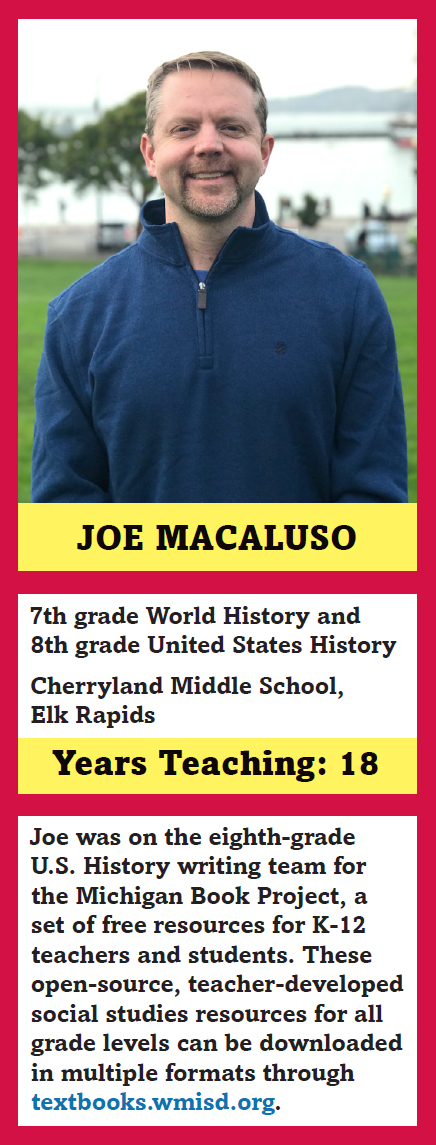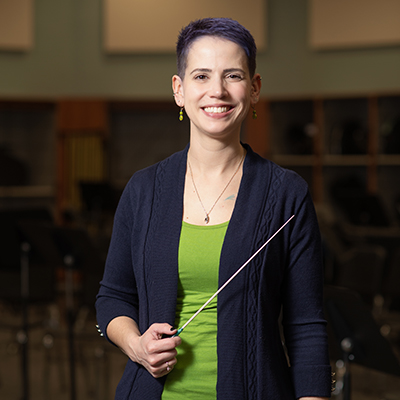Joe Macaluso
 Are there political divisions or tribes at your school?
Are there political divisions or tribes at your school?
Although our area of Northern Michigan is relatively conservative, divisions do not come through strongly at Cherryland Middle School in a normal election cycle. I’m not sure anyone would call the 2016 Presidential election normal, though. During the summer and fall of 2016, it was the most engaged I’ve ever seen students in the election process. More students wore the paraphernalia of their candidate of choice than I’d ever seen for an election. Chants of “Trump! Trump! Trump!” would echo through the halls at times, and the entire cycle did take on a tribal feel with sides being chosen and defended.
What do you do to interest students in how government works?
At Cherryland, I’ve taken students to the State YMCA of Michigan’s Youth in Government conference in Lansing for 15 years now. The program allows students to become state legislators at the Capitol for a day and experience the process of how bills become laws from the bill-writing process all the way to the governor’s signature or veto of their bill. Students have access to the chambers and sit in the seats of their Representatives and Senators. The program also includes a debate and political compromise program that has students tackle tough national and state issues. It’s an exceptional program that all schools in the state should make a part of their school year. Educators can learn more about the program at myig.org.
What current events have you used to draw students into deeper learning and debate?
Most recently, we were taking a look at the John Adams Presidency and reviewing his actions as president. Without any prompting, students made quick connections to Adams’ distrust and banning of certain press outlets that wrote unfavorably about his presidency under the Sedition Act. A student said, “Hey! That’s kind of like how Donald Trump feels, too!” It was a great way to compare Presidential actions of the past and the present. It didn’t end there, either. Discussing the Alien Act, which sought to make it harder for immigrants to become citizens prompted connections to President Trump’s travel bans on people from specific nations from entering the United States in addition to his border control policies. This lead to deeper discussions on how leaders make decisions when balancing the notions of the common good while also needing to balance individual rights guaranteed by the Constitution.
Does this add political tension to your job?
This certainly does add tension. For starters, I never state my political affiliations and always attempt to have a balanced delivery when modern politics arises. There were events in 2016 that I avoided due to some of the rancor and tone that it stirred up. That said, I tried to have policy discussion with students, but it was a challenge.
What do you see as your job in guiding students through political questions? I want my students to know and understand that they must always ask questions of our leaders. Stay involved and stay engaged. I tell them that it’s up to them once they turn 18 to buck the trend of youthful disengagement and become active, be it locally, at the state level or nationally. They need to find out the issues in our area and state and become informed and vote. More often, it’s local and state government decisions that will have the biggest impact on their lives, despite the fact that national politics grabs the headlines. It’s their future, and I want them to own it.


